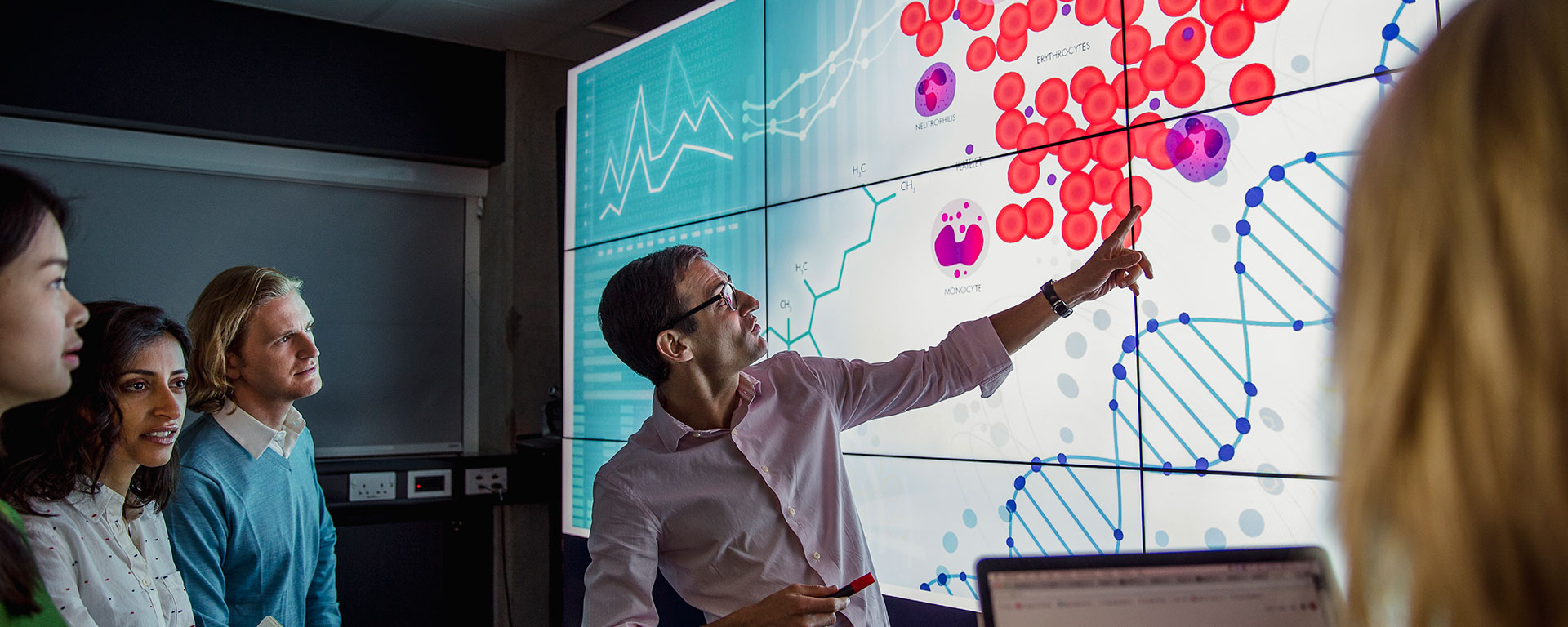Top Guidelines Of Bioinformatics Tutor
Top Guidelines Of Bioinformatics Tutor
Blog Article
The Single Strategy To Use For Bioinformatics Tutor
Table of ContentsThe Greatest Guide To Bioinformatics TutorThe Single Strategy To Use For Bioinformatics TutorOur Bioinformatics Tutor DiariesSome Known Questions About Bioinformatics Tutor.Getting My Bioinformatics Tutor To Work
Of the total amount participants associated with the training, 80% were trainees from public greater education and learning establishments, while the continuing to be 20% originated from exclusive organizations. To get a certificate of participation, students were needed to go to a minimum of 90% of the total training hours. As an outcome of this demand, an impressive 95% of the individuals efficiently gotten their certifications, having not only satisfied the minimum attendance requirements however likewise finished all appointed tasks throughout the training.
During the height of the COVID-19 pandemic, especially between June and August 2020, the task group was tasked with organizing specialized training in bioinformatics. This training was specifically targeted at pupils from the research study team Core for Research study in Applied Computer at the Federal College of Pará (UFRA) The adaptation to remote learning systems due to the pandemic developed a possibility to check out new training techniques and electronic tools that boosted both reach and performance.
This course was made to supply an obtainable yet comprehensive overview of Artificial Intelligence methods, particularly as applied in bioinformatics (Bioinformatics Tutor). This digital layout allowed engagement from pupils throughout Brazil, many of whom might not have had the chance to participate in in-person sessions.
An Unbiased View of Bioinformatics Tutor
A noteworthy function of this program was its emphasis on hands-on knowing. Roughly 50% of the complete training hours were committed to practical tasks where pupils constructed intelligent models and applications in a series of clinical domain names, consisting of genetics, molecular biology, and ecological information analysis. Commonly used frameworks and devices such as Spyder, Google Colab, Jupyter Notebooks, and Orange were incorporated into the coursework. These systems allowed pupils to engage in real-time information manipulation, model training, and formula experimentation.
Sixty of them were connected with numerous higher education and learning establishments in the state of Pará, while the staying twenty came from institutions found in 5 other Brazilian states. By introducing Artificial Knowledge in a sensible and appropriate context, the campaign offered to connect the void in between theory and real-world application, offering pupils with a strong structure for future study or employment in the field.
The training campaign created part of a wider academic outreach effort called the Bioinformatics when traveling project. This job has, over the years, presented dozens of trainees to the globe of bioinformatics and computational biology. The events held under this umbrella effort have actually occurred across numerous areas and years, as summarized in Table 1 (Checklist of occasions, places, years, and complete varieties of trainees and teachers)
Numerous of these groups, originally brought together by their participation in training occasions, have actually because gone on to produce independent clinical research study in partnership with local academic establishments. The training not just promoted clinical thinking within the context of bioinformatics yet likewise stimulated collaborative connections that extended beyond the training setting.
The Ultimate Guide To Bioinformatics Tutor
The same group, omitting IH and RR, also acted as tutors for the functional training components. Financing for the task was given via the grant 88887.200562/ 2018-00 from CAPES.
The Federal College of Pará's Workplace of Study (PROPESP/UFPA) additionally provided financial backing, particularly for the production of the last manuscript. The authors proclaim no commercial or economic problems of interest that can have affected the study. All viewpoints and analyses revealed in this article are entirely those of the authors and do not necessarily mirror those of their respective establishments, the publisher, editors, or customers involved in the publication procedure.

Not known Factual Statements About Bioinformatics Tutor
From a pedagogical perspective, the teaching strategy utilized in the training was purposefully interactive. Courses were performed in a fashion that urged trainee engagement and conversation, exceeding memorizing memorization to check out how ideas are developed, applied in everyday life, and tested in scholastic settings. The training ideology focused on supporting both solid and struggling students, offering individualized support, and structure self-confidence via sustained mentorship and patience.

Each team, being composed of about 36 participants, was sustained by three coaches-- a lot of whom were review postdoctoral researchers with customized competence. These coaches not just aided design the group projects yet also facilitated their execution, ensuring that each study concern was both relevant and suitably tough. The objective was to provide a biologically reasonable context that participants might explore with flexible goals and accessibility to curated datasets.
For additional insights right into the methodology and end results of this project-based knowing approach, readers are routed to S1 Text, which includes comprehensive summaries of the instructional framework, assessment techniques, and task motifs used in the training sessions.
The Definitive Guide for Bioinformatics Tutor
Of the total amount individuals entailed in the training, 80% were pupils from public higher education establishments, while the remaining 20% came from private establishments. To qualify for a certification of involvement, students were called for to participate in at the very least 90% of the total training hours. Especially, beyond the students who enrolled in the training sessions, seven knowledgeable instructors took part in providing the programs, while 3 committed study professors worked with the overall training process. Roughly 50% of the overall training hours were dedicated to useful activities where students built smart models and applications in an array of clinical domains, consisting of genes, molecular biology, and ecological information analysis. The training not only fostered scientific reasoning within the context of bioinformatics but likewise news stimulated collaborative relationships that prolonged past the training environment.
Report this page